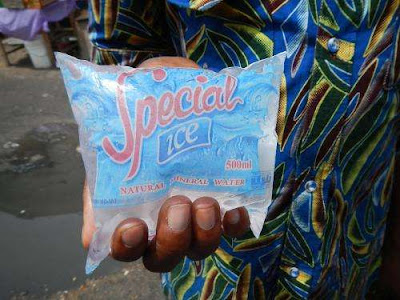“How do people in Africa respond to quantitative and qualitative changes in their water supply due to changes in the seasons?”Climate change is a long-term effect, as compared to seasonal changes, which happens on a much shorter timescale. It is a natural phenomenon that occurs due to Earth’s revolution around the sun, which influences whether a place experiences wet or dry weather. This then impacts the quantity, and sometimes the quality, of water resources. Why is it then so important to consider short term weather patterns when it comes to fluctuations in water resources? That is because the African continent possesses uneven climate variability on a temporal and spatial basis. In humid Central Africa, rainfall amounts can go up to 37%, whereas in arid North Africa, this amount can be as little as less than 3%.
According to Kumpel et al. (2017), weather variations impact water quality. During wetter seasons, water quantity increases, but water quality tends to decline. This is attributed to several reasons. Firstly, there is a growth in potential contamination of groundwater due to the water table rising (Kumpel et al., 2017). Secondly, substantial rainfall could lead to an upsurge in soil, pollutants, animal waste, trash, and/or any materials being washed into nearby waterbodies (EPA, 2017). Thus, resulting in water becoming non-potable and requiring treatment before it can be safely consumed. During dryer seasons, such as in times of droughts, water quantity and quality decreases. For example, water resources located closer to coastlines may face increasing salinisation. This is because when the volume of freshwater decreases (either from rising consumption and/or increased rates of evaporation due to higher temperatures), saltwater will move upstream to replace the lost quantity, a process known as saltwater intrusion.

Figure 1: Example of a type of plastic sachet water found in Ghana, West Africa (Source: Justin Stoler, University of Miami)
Ghanaians, for example, rely heavily (at least 50% of the population!) on unimproved water sources such as rivers, rainwater, boreholes, dams, and hand-dug wells (Issaka et al., 2015). These resources tend to be shared by other animals, or sometimes used as "toilets", increasing the risks of contamination. While rainwater has been proven to be safe for consumption purposes (Issaka et al., 2015), there are little alternatives during dry seasons because the country lacks the infrastructure to treat non-potable water. Hence, a well sought-after substitute during the dry seasons is plastic water sachets, also commonly referred to as "pure water". Pure water is attractive because of its affordability, convenience, perceived quality, and accessibility. There are at least 1,238 registered companies involved in the manufacturing and provision of sachet water, thus proving their popularity amongst the Ghanian masses. The sachet water services are very important because they fill up the huge gap left by the lack of readily available safe water, as well as create job opportunities for locals. This decreases unemployment rates and positively impacts the local economy in the long run.
Sounds like a miracle to a country in the midst of developing right? Unfortunately, there comes a catch to utilising sachet water services. The plastic sachets used to contain the water pose a severe environmental pollutant, where Professor Stoler of the University of Miami reports that the huge amounts of discarded plastic sachets have blocked storm drains and gutters, leading to potential future flooding events and sewage contamination in communities living close to these drains (phys.org, 2013). Additionally, there have been news of water sachets containing harmful substances, where in the greater Accra region, 3/5 of sachets sampled were found to be unsafe for consumption. Therefore, sachet water/pure water is a plausible response to dealing with low water supplies during times of dry weather in Ghana. However, it also comes at a price to the environment and the community if it is not responsibly discarded away or produced, and should thus not be implemented for long term dry seasons (such as droughts, which are becoming more and more common with exacerbating climate change).
With that in mind, I will go into more detail of both hard and soft water supply related strategies taken by the many different African government agencies to combat the problematic water resources the continent experiences in my next two posts.
Portable water sachets and bottled water are big business in Sub-Saharan Africa! I look forward to posts on "hard" and "soft" pathways to solving water scarcity.
ReplyDeleteThis comment has been removed by the author.
ReplyDeleteHello! In my opinion, I think water sachets are a shortsighted solution. I also happen to come to know this form of water privatisation depend heavily on secondary water retailing which adds additional stresses on public water systems which are already under stress (E.g. Accra). Thus beyond environmental impacts, it also has socioeconomic consequences as it affects urban water metabolism. You can look up on: The Sachet Water Phenomenon in Accra (Stoler, 2013). However, the ability to distribute water sachets easily is a selling point compared to existing infrastructures (pipes etc.) which are poor and need upgrading. Anticipating your upcoming posts on strategies! =D
ReplyDeleteI agree with you that water sachets are indeed a shortsighted solution, especially due to the cons that arises from its (over)usage. Thanks for providing me with that link as well! I've never actually considered it that way but now that you've mentioned it, it makes total sense.
DeleteI've also uploaded the strategies posts, although the way I've written them is different from the way I thought I would have initially approached it (due to the research I came across....). Nonetheless, I hope that you'll look forward to reading them :)